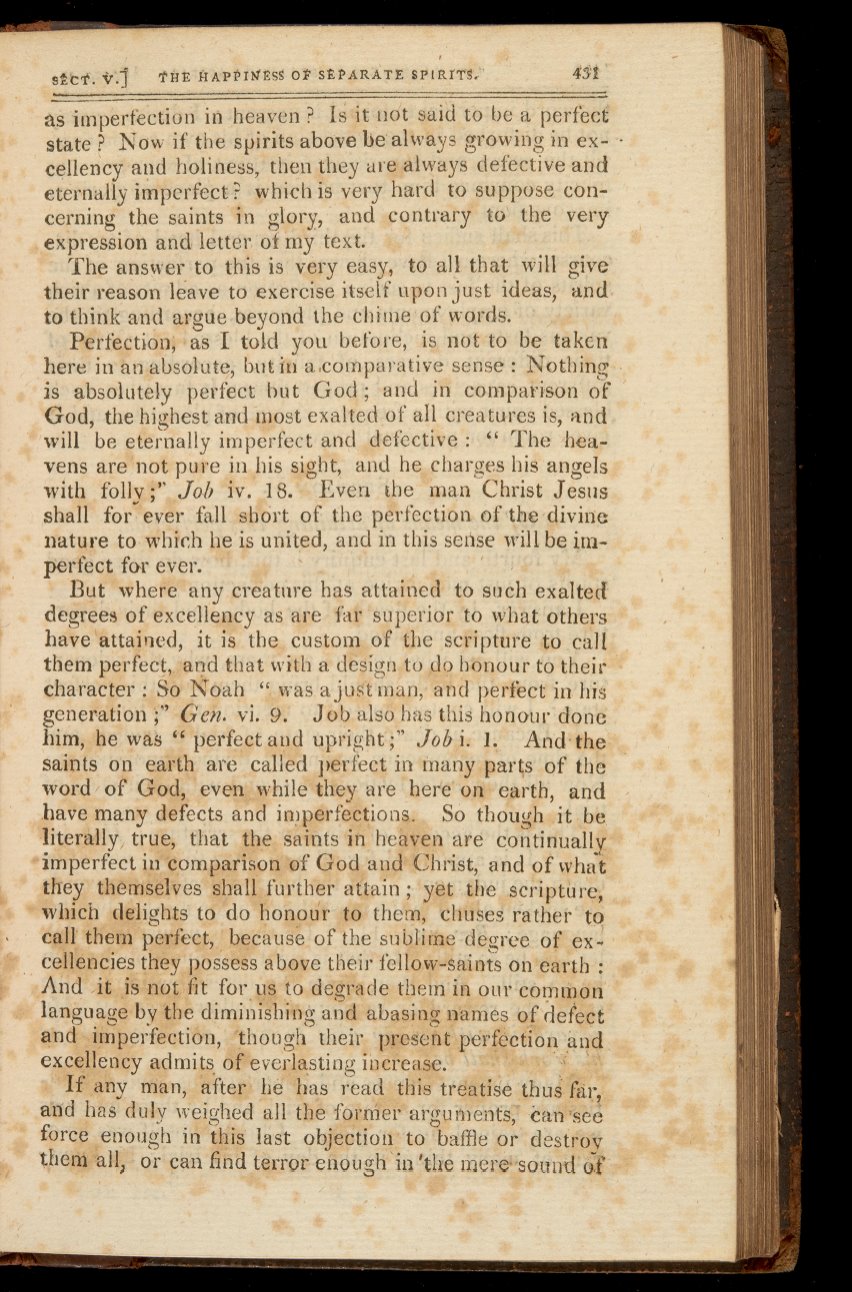

SPEI.
V.j
THE
tIAPPINEs5
OP
SEPARATE
SPIRITS.
434
as imperfection
in
heaven
?
Is it not said to
be
a
perfect
state
?
Now
if
the spirits above
be
always
growing
in
ex-
cellency
and
holiness,
then they are
always
defective
and
eternally
imperfect
which
is
very
hard to suppose
con-
cerning the saints
in glory,
and
contrary
to
the
very
expression
and
letter
of
my
text.
The
answer
to this
is
very
easy,
to all
that
will
give
their
reason
leave
to
exercise
itself upon
just
ideas,
and
to
think
and argue
beyond
the
chime
of
words.
Perfection;
as
I
told you before,
is
not
to
be
taken
here
in
an
absolute,
burin
a,comparative
sense
:
Nothing
is absolutely
perfect hut God
;
and
in
comparison
of
God,
the highest
and most
exalted
of
all
creatures
is,
and
will be
eternally imperfect and defective
:
"
The hea-
vens
are not pure
in his sight,
and
he
charges
his
angels
with
folly
;"
Job
iv.
18.
Even
the
man
Christ
Jesus
shall for ever
fall
shórt
of
the perfection
of
the divine
nature
to
which he
is
united, and
in
this sense will
be
im-
perfect
for
ever.
But
where any
creature
has
attained
to such
exalted
degrees
of
excellency
as
are far superior
to
what
others
have. attained,
it
is
the custom
of
the
scripture
to call
them perfect, and
that
with a design
to do
honour
to
their
character
:
So
Noah
`
was
a
just
man,
and perfect
in
his
generation
;"
Gen.
vi.
9.
Job
also has this
honour done
him, he
was
"
perfect and
upright;" Job
i.
1.
And -the
saints
on
earth
are
called
perfect
in
many
parts
of
the
word
of
God,
even while they
are here
on
earth,
and
have many defects and
imperfections.
So
though
it
be
literally true,
that
the saints
ih
heaven
are continually
imperfect
in
comparison of God and Christ, and
of
what
they
themselves shall
further
attain
;
yet the scripture;
which
delights
to do
honour
to them,
causes
rather to
call
them perfect, because
of
the
sublime degree
of
ex-
celléncies
they possess
above their fellow-saints on
earth
:
And
it
is
not
fit
for
us
to
degrade
them
in
our
common
language
by
the diminishing and abasing names
of
defect
and imperfection,
"though
their
present
perfection and
excellency admits
of
everlasting increase.
If
any man,
after he
has
read
this
treatise thus
far,
and has duly
weighed all
the
former arguments,
Can
'see
force enough in this
last
objection
to
baffle
or destroy
them
all,
or can
find
terror
enough 'in
'the mere-sound
of

















